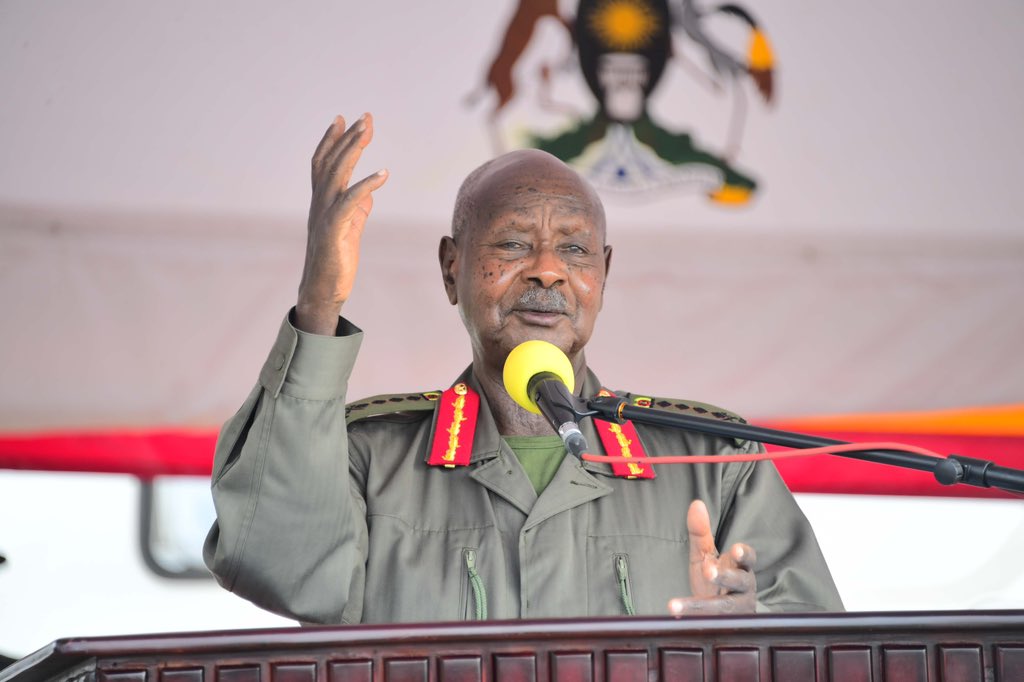President Yoweri Museveni briefed the Cabinet and the National Resistance Movement’s (NRM) central executive committee on new, stronger measures against corruption.
Speaking at the National Leadership Institute in Kyankwanzi district, Museveni announced the formation of a new anticorruption unit under the State House, named the Accountancy and Audit Unit, aimed at overseeing audit processes across various government levels.
Formation of New Units to Combat Corruption
“Given the failures of the accounting officers, we are stepping in directly. Apart from the State House Anti-Corruption Unit, we are now creating the Tax Investigations Unit and the Accountancy and Audit Unit,” Museveni stated.
Recently, Museveni also established the State House Revenue Intelligence and Strategic Operations Unit to supervise Uganda Revenue Authority (URA) operations and combat corruption within the tax system. David Kalemera has been appointed as a senior presidential advisor to lead this unit.
Addressing Revenue Management Issues
Museveni believes Uganda has substantial financial resources but suffers from poor tax collection and widespread theft. “There is under-collection and massive stealing.
Along with the State House Anti-Corruption Unit led by Brig. Gen. Henry Isoke, these units will investigate tax evasions, under declarations, and misappropriated funds,” he explained.
Parliamentary Fund Mismanagement
He pointed out that some of the funds diverted by Parliament were used for minor, unnecessary projects, undermining larger, more critical efforts, and some of it was outright stolen.
Citing a report from the Inspector General of Government (IGG), Museveni highlighted that Uganda loses sh9.7 trillion annually to corruption. “This is unacceptable and will be crushed,” he asserted.
Types of Corruption and Responsibilities
Museveni categorized corruption into two types: stealing public funds and misusing procurement procedures, and employee disloyalty in both government and private companies.
He urged the Police to ensure that those responsible repay the stolen money.
“Initially, political leaders are not tasked with fighting corruption, but they must protect the public if professionals fail to do their job,” he added.
Calls for Self-Assessment and Accountability
Vice-President Jessica Alupo called for a self-assessment among the retreat participants to evaluate government achievements and shortcomings.
“I urge all participants to honestly share their views on the topics discussed,” she said.
Prime Minister Robinah Nabbanja briefed the President on service delivery across sectors, noting improved road networks but acknowledging delays in Kampala due to design reviews.
The retreat, themed “Answering the Citizens’ Call: Improved Service Delivery for Socio-Economic Transformation,” aims to reflect on the 2021/2026 manifesto, campaign promises, and strategies for the next elections.
Self-Examination and Expert Contributions
Cabinet Secretary Lucy Nakyobe described the retreat as a self-examination exercise to identify performance shortfalls and develop practical solutions.
“We will shine a light on ourselves, identify what has gone wrong, and set a timeframe for solutions,” Nakyobe stated.
The retreat will also feature experts from the Eastern and Southern African Management Institute (ESAMI) and government technocrats.
Evaluating the Party’s Impact and Future Plans
NRM party secretary general Richard Todwong emphasized the importance of the retreat for evaluating the manifesto’s impact.
“This retreat allows us to learn from our mistakes, recognize our successes, and improve our next manifesto,” Todwong said.
Ensuring Thorough Review and Implementation
Government Chief Whip Hamson Obua noted that all decisions made during the retreat would be reviewed by the relevant ministries, departments, and agencies.
“Legislative decisions will go through the NRM parliamentary caucus to generate consensus before being presented in Parliament,” he said.
State Minister for Public Service Mary Mugasa expressed hope for discussions on reducing government expenditures.

